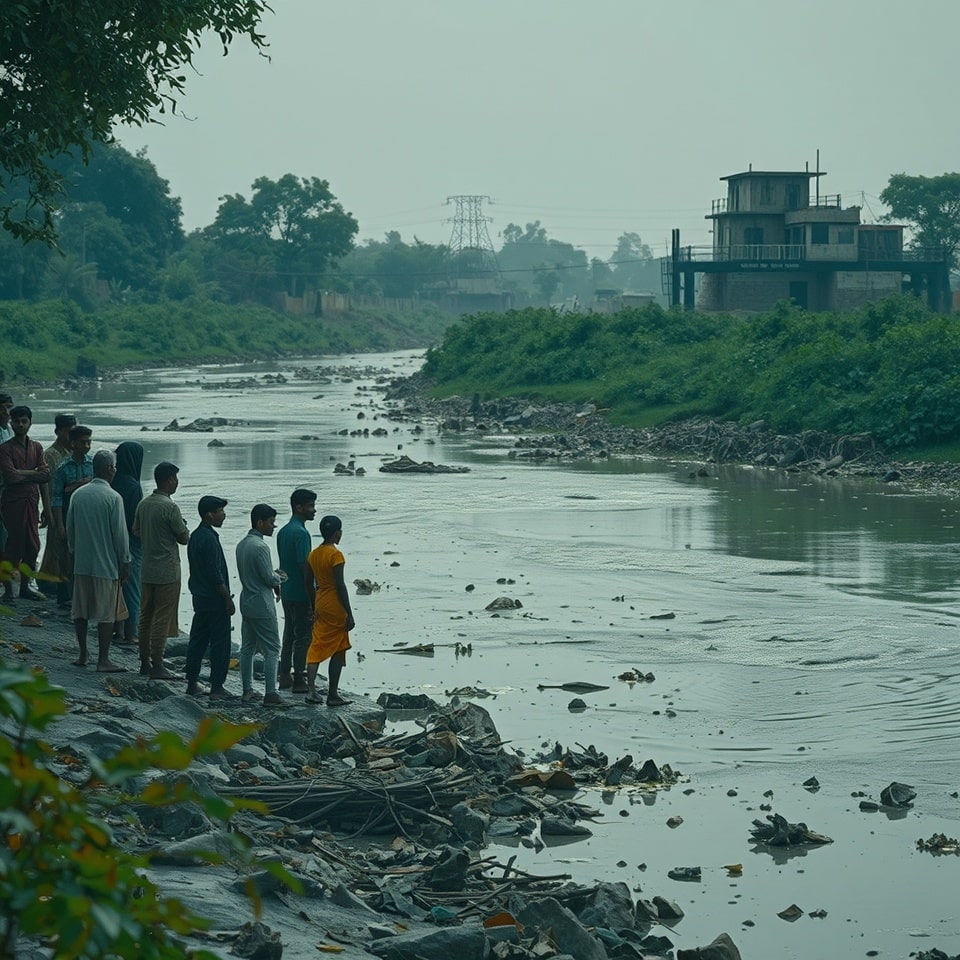India, with its growing population and rapid urbanization, is facing an acute water crisis. Cities like Delhi are at the forefront of this crisis, grappling with dwindling resources and contaminated water supplies. Delhi’s water crisis has not only escalated to a significant public health challenge but also poses a severe environmental risk, highlighting the urgent need for sustainable water management.
The Water Crisis in India: An Overview
India accounts for appx.18% of the world’s population but holds only 4% of its water resources, creating an imbalance that’s worsening with time. According to the NITI Aayog’s Composite Water Management Index, over 600 million people in India face high to extreme water stress. By 2025, the demand for water is expected to double, placing immense pressure on both urban and rural water systems.
.jpg)
Delhi's Water Woes: Key Facts and Figures
Delhi, the capital of India, with a population exceeding 33 million, depends on an already stretched water supply system. Here’s a closer look at the factors contributing to Delhi’s water crisis:
1. High Water Demand vs. Limited Supply: Delhi’s daily water demand is more than 1,200 million gallons per day (MGD), but the Delhi Jal Board (DJB) can only supply about 900 MGD, resulting in a shortfall of over 300 MGD. This gap forces residents in some areas to rely on tankers or borewells, which are both unsustainable and expensive solutions. ( estimate figures )
2. Dependency on Neighboring States: The city sources much of its water from the Yamuna River, with additional supplies from the Ganges, Beas, and Sutlej rivers, all shared with Haryana and Uttar Pradesh. This dependency often results in disputes, especially during dry seasons when water is scarce, further straining Delhi's already limited water resources.
3. Groundwater Depletion: Delhi’s groundwater levels have been falling rapidly due to over-extraction. The Central Ground Water Board has categorized Delhi’s groundwater as “overexploited.” By 2025, the city may face a severe crisis, with groundwater resources nearly exhausted in many areas.
4. Pollution of the Yamuna River: The Yamuna River, which provides nearly 70% of Delhi’s water, is heavily polluted. Over 80% of the river’s pollution load comes from untreated domestic sewage and industrial effluents. Despite efforts to clean the Yamuna, poor wastewater treatment and illegal dumping continue to degrade this vital water source.
5. Impact of Climate Change: Changing rainfall patterns and rising temperatures, partly due to climate change, have worsened Delhi’s water challenges. Extended dry spells reduce surface water availability, forcing a heavier reliance on groundwater and contributing to its rapid depletion.
The Health Implications of Water Scarcity
The water crisis in Delhi is not just an environmental issue but a major public health concern. Contaminated water sources and limited availability increase the risk of waterborne diseases like cholera, typhoid, and diarrhea, which are particularly dangerous for children. Residents in areas with inadequate water infrastructure often have no choice but to use unsafe water, leading to frequent outbreaks and increased healthcare costs.
Initiatives and Solutions: Can Delhi Overcome Its Water Crisis?
Various measures have been undertaken to address Delhi’s water challenges. The Delhi Jal Board has been working on rainwater harvesting initiatives, sewage treatment upgrades, and better water conservation practices. However, these efforts alone may not be sufficient to solve the problem. Here are a few promising approaches that can contribute to a more sustainable water future for Delhi:
1. Rainwater Harvesting: Mandatory rainwater harvesting systems in both residential and commercial buildings could recharge groundwater, helping alleviate water stress during dry seasons.
2. Wastewater Treatment and Recycling: Expanding and upgrading Delhi’s wastewater treatment infrastructure is crucial. Treated water could be used for non-potable purposes like irrigation, industrial processes, and landscaping, conserving fresh water for drinking and other essential uses.
3. Desilting and Rejuvenating Local Water Bodies: Reviving traditional water bodies can enhance groundwater recharge and reduce dependency on river water. Local water bodies in Delhi could serve as reservoirs for rainwater, providing a sustainable alternative during times of scarcity.
4. Public Awareness and Water Conservation: Education on water-saving habits at both individual and community levels is essential. Practices like fixing leaks, using water-efficient appliances, and mindful water use can contribute to significant water savings across the city.
5. Non-Invasive Tank Cleaning Solutions: Water storage tanks in buildings and households must be maintained regularly. Non-invasive cleaning methods prevent contamination from bacteria, algae, and other pollutants, ensuring a safer, cleaner water supply for daily use.
Call +91 99991 23030 for a FREE non-invasive tank cleaning quote
Conclusion
Delhi’s water crisis is a microcosm of India’s larger water management challenges. With effective planning, sustainable resource management, and community involvement, there is hope for a more secure water future. By addressing issues like groundwater depletion, river pollution, and inefficient water use, Delhi can set an example for other urban centers facing similar crises. Now, more than ever, it’s time to acknowledge water as a precious, finite resource and to act decisively to protect it.





2 Comments
John Doe
Posted on: March 13, 2025Leverage agile frameworks to provide a robust synopsis for high level overviews. Iterative approaches to corporate strategy foster collaborative thinking to further the overall value proposition.
John Doe
Posted on: March 13, 2025Leverage agile frameworks to provide a robust synopsis for high level overviews. Iterative approaches